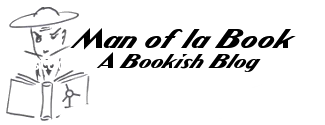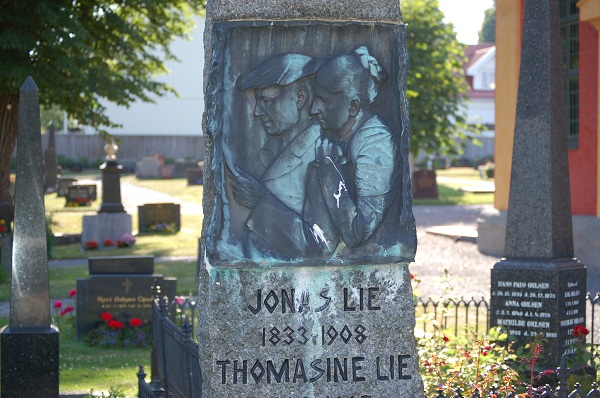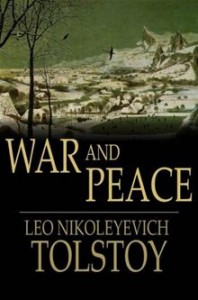Jonas Lauritz Idemil Lie is considered to be one of the Four Greats of Norwegian literature of the 19th Century. Mr Lie was a writer, a poet, novelist.
Search results for: Russian literature
Award winning Russian writer Mikhail Sholokhov (24 May, 1905 – 21 February 1984) was known for write and the Russian revolution, Civil War and collectivization. 1) Sholokhov was born in Veshenskaya, known as “land of the Cossacks”. 2) Sholokhov’s mother learned how to read late in life for the sole purpose of corresponding with her son. 3) At the age of 13 Sholokhov fought in the Russian civil war for the Bolshevikk side for several years. 4) After the war Sholokhov moved to Moscow to work as a journalist. He held several jobs including a stonemason and an accountant to pay the bills and be able to participate in writers’ seminars. 5) In 1923 Sholokhov published his first work, The Test, but returned to Veshenskaya in 1924 to devote himself to writing. 6) In 1924 Sholokhov married Maria Petrovna Gromoslavskaia. The couple had two daughters and two sons. 7) Sholokhov’s most famous book, And Quiet Flows the Don which deals with Cossacks before and during World War I and the Russian civil war earned him the Stalin Prize and took 14 years to finish. The work, called socialist realism, was the most read Soviet fiction and won Sholokhov the 1965 Nobel…
Tolstoy does not understand how historians refer to Napoleon as “great” as he does not live up to the standards of humanity and goodness, neither as a military commander, emperor, leader or even in exile. As a conqueror / enemy / ally Napoleon constantly mislead the Russians and destroyed their economy. When he gives the order for the French to retreat, Napoleon already made sure he’s the first one to withdraw.
Today is the birthday of Romanian poet and translator Paul Celan (23 November 1920 – abt. 20 April 1970) . Born into a Jewish family in Romania (Ukraine) . Celan was awarded the Bremen Literature Prize in 1958 and the Georg Büchner Prize in 1960. 1 ) Celan was born as Paul Antschel but changed his name to Celan (pronounced Chelan). 2 ) Celan’s father was a Zionist and insisted his son learn Hebrew. Celan’s mother loved German literature and insisted that German will be spoken in the house. Paul Celan abandoned Zionism after his Bar-Mitzvah but finished his Hebrew education. 3 ) During World War II Celan and his parents were deported into a ghetto on October 1941. Celan kept busy but translating Shakespeare’s Sonnets and writing his own poetry. In the Ghetto Celan was exposed t traditional Yidish songs and culture. When the ghetto was dissolved Celan was working as a forced laborer clearing debris and destroying Russian books. 4 ) Celan tried to convince his parents to leave Bukovina, but they refused. One night Celan was so mad he slept at a friend’s house. That night, 21 June, his parents were deported to an interment camp in…
The French troops are marching intoRussia and the two Russian leaders, Prince Bagration and the German Barclay de Tolly, represent two conflicting and opposing forces within the Russian army. Prince Bagration has the advantage since the Russians don’t like the Germans too much.
Article first published as Book Review: The Hunger Angel by Herta Müller on Blogcritics. About: The Hunger Angel by Herta Müller is a German novel taking place in a Soviet forced labor camp at the end of World War II. Ms. Müller won the 2009 Nobel Prize in Literature. 304 pages Publisher: Metropolitan Books Language: English ISBN-10: 080509301X My rating for The Hunger Angel – 4 Buy this book in paper or electronic format* More Books by Herta Müller Check out this & more World War II books on Man of la BookStore Thoughts: The Hunger Angel by Herta Müller takes place in 1945, when the Soviet Union demanded that all Romanian Germans who are 17 to 45 years of age be relocated to forced labor camps in order to help rebuild the devastated nation. According to the author’s note at the end of the book, she spent many hours talking to poet Oskar Pastior who suffered under the decree. Müller filled four notebooks with Mr. Pastior’s testimony until 2006, when he suddenly passed away. This is an extraordinary book about the hardships the German people faced after the war, as Leo Auberg, the protagonist states: “To this day, the hunger angel speaks out of your mouth. But no matter what he says, this…
The novel starts off with a section in which Tolstoy writes his thoughts about the nature of historic action. At first this annoyed me (as I continued reading I discovered that this was not unique to this section) because it seems to bring the story to a grinding halt. At firs this type of meditations annoyed me, but the more I read the more I realized that Tolstoy was keeping to the theme of War & Peace, the human condition. Only instead of pontificating on the subject of human condition while telling the story of a bunch of disgusting and somewhat less disgusting people, Tolstoy turns the table on the readers and discusses the subject on a much bigger scale.
So far, this was the shortest part of War and Peace by Leo Tolstoy and also the least dramatic. This part, it seems to me, is a setup for things which are upcoming in the novel.
The part which I mostly enjoyed in this section is the wolf hunt. Tolstoy goes into the minds of the wolf as well as the hunting dogs and the reader gets to share their thoughts and excitement. The way the wolf hunt was written reminded me greatly of the great battle scenes earlier in the book.
Andrei is on his way to visit the Rostovs, on the way he sees an old, weathered oak and identifies with it, continuing on he sees a young girl which is full of life and spontaneous. The Count invites Andrei to spend the night, which he readily accepts. From his window, Andrei can hear the girl he saw earlier, Natasha, who is enamored by the moonlit night. Andrei feels his world weariness going away, being replaced by hope. On his way back, Andrei sees that same old oak tree sprouting new leaves.
Yesterday we celebrated the birthday of Russian essayist & poet Joseph Brodsky (24 May 1940 – 28 January 1996). A Jew born in Leningrad, Brodsky is known for his powerful insights, as well as creating tension between seemingly random images and subtle rhyming. Books and Poems by Joseph Brodsky 1 ) While working as an aid to a coroner and a geologist, Brodsky studied English, Polish, wrote poetry and translated into Russian the work of John Donne and Czeslaw Milosz. Brodsky’s poetry impressed a leading Russian poet Anna Akhmatova who became his mentor. 2 ) In 1964 Brodsky was arrested. Charged with the crime of “social parasitism” Brodsky was sentenced him to five years of hard labor. Major Soviet paper called his work”pornographic and anti-Soviet”, and the authorities found that his odd jobs and profession as a “psuedo-poet” did not meet the “constitutional duty to work honestly for the good of the motherland.” Luckily for him, prominent literary figures protested and the sentence was commuted. 3 ) In 1971, Brodsky was twice invited to emigrate to Israel, however he declined. When the Ministry of the Interior heard that he wanted to stay, they broke into his apartment, took his papers…


